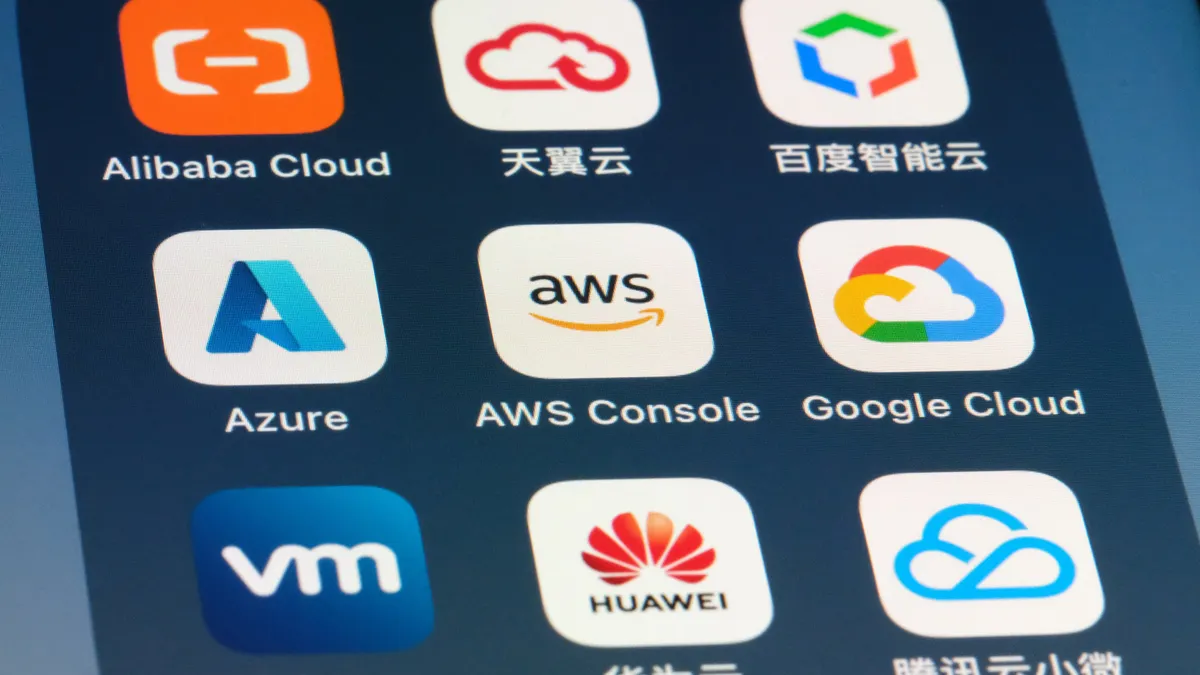Big tech providers are bellwethers for the IT workforce, setting work standards for flexibility in an undersupplied labor market.
Tech sector companies added 134,600 jobs this year, CompTIA data shows. The influence of large tech companies trickles down across industries, affecting worker expectations and even company operations.
"Non-tech companies are hungry for real-world experiences and examples of, and models for, hybrid working," said Matt Cain, distinguished research VP at Gartner, in an email. "As tech companies embrace hybrid work and share best practices and models, they will likely influence non-tech companies to feel more confident in pursuing hybrid strategies."
After missing multiple back-to-the-office deadlines, most large players in the tech industry are embracing hybrid work as the norm, though not all models look the same.
Major tech players aren't alone in the pivot. Forrester predicts seven in 10 companies will significantly expand their "anywhere-work" program post-pandemic, according to data presented Tuesday at Forrester's Technology & Innovation North America 2021.
The majority of those companies embracing anywhere work will take on an "office-plus-anywhere-work hybrid, or hybrid work approach," said J.P. Gownder, VP and principal analyst at Forrester. "A small number of companies are going to go more radically remote."
That's not to say the change will be easy.
There's been a concern among tech leaders, Gownder said, that hybrid "means free-for-all, that everyone can do anything that they want anytime. That might be the wrong way to think about hybrid." Instead, leaders should think of hybrid as an attempt to improve employee experience by infusing flexibility .
Here is how five big tech companies are approaching hybrid work:
Microsoft
Microsoft indefinitely deferred the decision to call back its employees back for on-site work, citing the uncertainty of COVID-19 and the upside hybrid operations provide the employee experience.
For Microsoft CEO Satya Nadella, the key to the company's future hybrid work plans revolves around intention — having a plan and an objective to leverage physical space.
"We are redesigning some of our campus spaces," Nadella told the Harvard Business Review last week. "We will still have our campus, we love our campus; except the way managers and teams will use our campus will change. They may want to bring everyone together for a design session. Or we want to bring everybody for a crunch-time mode in building, say, some software product."
"I think a combination of space and this remote digital fabric that we have established through the pandemic will come together to give us the tools for flexibility," Nadella said.
Meta
The most recent play from Facebook, which formally rebranded to Meta last week, outlines a future of work featuring digital avatars and augmented reality. Among its workforce, Meta has already embraced flexibility, allowing most workers to request permanent work from home if their jobs allow it.
"We've learned over the past year that good work can get done anywhere, and I'm even more optimistic that remote work at scale is possible, particularly as remote video presence and virtual reality continue to improve," CEO Mark Zuckerberg wrote in a memo to employees, CNBC reported in June.
Amazon
The company initially announced a couple of back-on-site dates as the pandemic eased, later updating it as conditions unfolded.
Amazon workers were expected to begin filing back into the office in September, which was later postponed to January 2022. But last month CEO Andy Jassy announced plans for further flexibility on how to set up the balance of on-site versus remote work.
"We're intentionally not prescribing how many days or which days," Jassy said, in a memo to employees. "This is for directors to determine with their senior leaders and teams. The decisions should be guided by what will be most effective for our customers; and not surprisingly, we will all continue to be evaluated by how we deliver for customers, regardless of where the work is performed."
Alphabet
Google's parent company Alphabet also extended its deadline for a return to the office, which was initially slated for this fall. In a memo to employees, CEO Sundar Pichai announced an extension until January 2022.
"It's heartening to see Googlers starting to come back to more offices globally," Pichai said. "The ability to reconnect in person has been re-energizing for many of us, and will make us even more effective in the weeks and months ahead."
Google's play for the enterprise market addresses hybrid work requirements, such as videoconferencing or collaboration. The company's also tracking what impact a broader switch to hybrid work will mean for how customers use technology.
"As consumers, businesses and schools continue their shift toward hybrid work, the threats of cybersecurity continue to increase," said Pichai in an earnings call last week. "Customers are turning to Google Workspace and our cybersecurity platform to provide the ease of use, collaboration and security they need."
Apple
Apple plans to call employees back to the office starting in January, after the planned October return, according to a memo sent to employees obtained by Bloomberg. The plan laid out by Apple will involve three days in the office, and two days of remote work available on request.
"I know I'm not alone in missing the hum of activity, the energy, creativity and collaboration of our in-person meetings and the sense of community we've all built," Apple CEO Tim Cook told staffers.





















